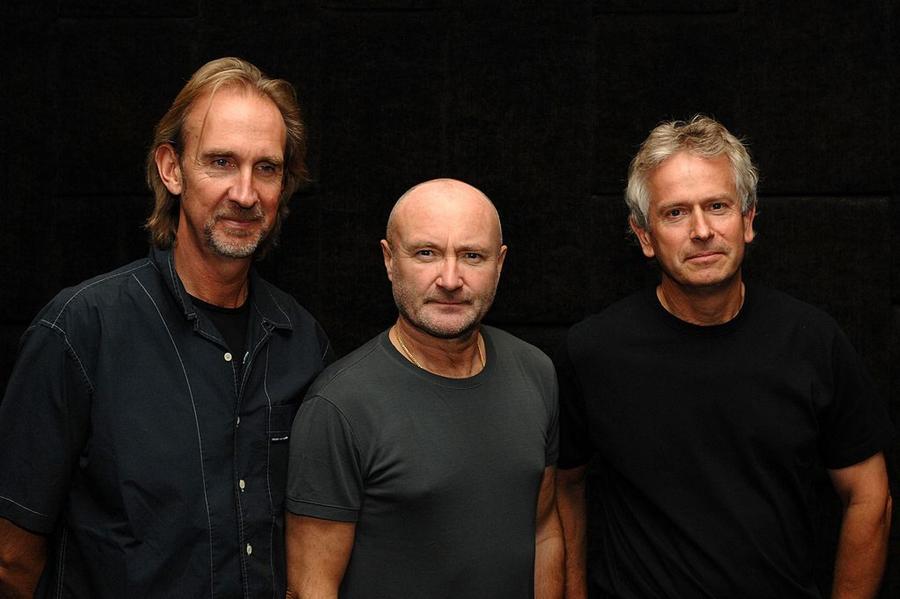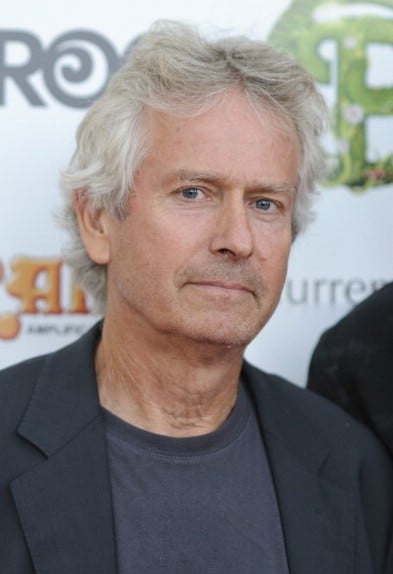What is Tony Banks' Net Worth?
Tony Banks is a British musician who has a net worth of $100 million. Tony Banks is best known for being the keyboardist and a founding member of the band Genesis. In September 2022, Tony and his Genesis bandmates Mike Rutherford and Phil Collins sold their music catalog rights to Concord Music Group Inc. for $300 million.
Tony Banks is a pioneering figure in progressive rock, best known as the founding member and keyboardist of Genesis, one of the most influential progressive rock bands in music history. Since 1967, Banks has been instrumental in shaping the band's distinctive sound through his complex keyboard arrangements, classical-influenced compositions, and atmospheric synthesizer work. His virtuosic performances and innovative approach to electronic instruments helped define Genesis through its multiple incarnations—from its early art-rock period with Peter Gabriel to the more commercially successful Phil Collins era. Beyond Genesis, Banks has pursued a diverse solo career encompassing film scores, classical compositions, and rock albums. While less flamboyant than some of his bandmates, his musical contributions as a composer and arranger have been fundamental to Genesis's artistic legacy and the broader progressive rock genre.
Early Life and Genesis Formation
Anthony George Banks was born on March 27, 1950, in East Hoathly, Sussex, England. Raised in a middle-class household, he developed an early interest in classical music, particularly the works of Ravel and Debussy, whose impressionistic qualities would later influence his compositions. While attending Charterhouse School, Banks met Peter Gabriel, Mike Rutherford, and Anthony Phillips, forming the nucleus of what would become Genesis in 1967. Initially performing covers, the group soon began creating original material that showcased Banks's growing prowess on piano and organ.

Darryl James/Getty Images
Musical Style and Contributions
Banks's keyboard work became a defining element of Genesis's sound. His classical background and interest in orchestral textures informed his approach to keyboard arrangements, often featuring intricate counterpoint and harmonic complexity. During the 1970s, he pioneered the use of the Mellotron, Hammond organ, and various synthesizers to create lush, atmospheric soundscapes that became a Genesis trademark. His compositions typically feature dramatic shifts in mood, tempo, and dynamics, with songs like "Firth of Fifth" and "The Cinema Show" demonstrating his ability to combine technical virtuosity with emotional depth.
Evolution Within Genesis
As Genesis evolved from progressive rock experimentation to more accessible pop-rock in the 1980s, Banks adapted his style accordingly. While maintaining his distinctive keyboard sound, he embraced digital synthesizers and incorporated more straightforward song structures. During the Phil Collins-led era, Banks contributed significantly to hits like "Turn It On Again" and "Mama," demonstrating his versatility as both a progressive virtuoso and commercial songwriter. Despite lineup changes throughout the decades, Banks remained a constant presence, serving as the band's musical anchor through its various transformations.

Ben Pruchnie/Getty Images
Solo Career and Other Projects
Beyond Genesis, Banks has pursued a diverse solo career. His first solo album, "A Curious Feeling" (1979), featured the progressive rock style he was known for, while later albums like "The Fugitive" (1983) embraced more pop-oriented approaches. In the 1990s, Banks shifted focus toward orchestral composition, releasing classical albums including "Seven" (2004) and "Six Pieces for Orchestra" (2012). He also composed soundtracks for films such as "The Wicked Lady" (1983) and "Quicksilver" (1986). Though less commercially successful than his work with Genesis, these projects showcase Banks's compositional breadth and ongoing musical evolution.
Legacy and Influence
Tony Banks's influence extends far beyond his commercial success. His keyboard techniques and compositional approaches have inspired countless progressive rock musicians and helped legitimize electronic instruments as serious tools for musical expression. As a songwriter, his emphasis on mood, texture, and harmonic sophistication challenged conventions of rock music. While often overshadowed in public recognition by bandmates Peter Gabriel and Phil Collins, Banks's contributions to progressive rock innovation have been acknowledged by critics and fellow musicians alike, cementing his status as one of the genre's most important architects.
Throughout his career spanning more than five decades, Tony Banks has remained committed to musical exploration and artistic integrity, continuing to create music that bridges classical sophistication with rock sensibilities. His enduring legacy lies in his ability to infuse popular music with elements of classical composition, forever expanding the boundaries of what rock music could express.
/2014/08/tony-banks.png)
/2016/09/Rick-Wakeman-1.jpg)
/2010/12/Jon-Anderson.jpg)
/2014/07/Steve-Hackett.png)
/2015/03/GettyImages-665960406.jpg)
/2020/06/taylor.png)
:strip_exif()/2015/09/GettyImages-476575299.jpg)
/2009/09/Brad-Pitt.jpg)
/2020/02/Angelina-Jolie.png)
/2018/03/GettyImages-821622848.jpg)
/2020/01/lopez3.jpg)
:strip_exif()/2009/09/P-Diddy.jpg)
/2009/09/Jennifer-Aniston.jpg)
/2009/09/Cristiano-Ronaldo.jpg)
/2009/11/George-Clooney.jpg)
/2020/04/Megan-Fox.jpg)
/2019/10/denzel-washington-1.jpg)
/2014/08/tony-banks.png)
/2016/09/Rick-Wakeman-1.jpg)
/2014/08/GettyImages-79685653.jpg)
/2016/11/greg-lake.jpg)
/2015/03/GettyImages-665960406.jpg)
/2015/06/Chris-Squire1.jpg)
/2019/09/Geoff-Downes.jpg)
/2014/07/Chris-Jasper.jpg)
/2019/04/rr.jpg)
/2017/02/GettyImages-528215436.jpg)